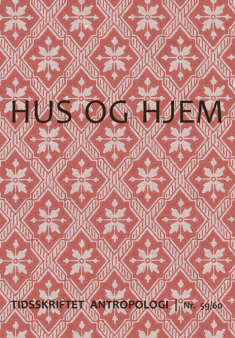PÅ SIKKER GRUND: Genhusning efter tsunamien i Tamil Nadu
DOI:
https://doi.org/10.7146/ta.v0i59/60.106843Resumé
This article explores the various meanings ascribed to destroyed, repaired and
newly constructed houses in the South Indian fi shing village of Tharangambadi
which was heavily affected by the tsunami disaster in December 2004. The article
focuses on re-housing both as implemented by authorities and as understood by
the survivors, thereby investigating divergent notions of danger and safety. The
overall argument is that re-housing as a spatial practice is a much more comprehensive
process than the mere shift of locality from a disaster-prone area to a
safe area. By looking at practices of re-housing and the ways in which both old
and new houses are engaged with and appropriated, it becomes clear that what is
at stake for the survivors in Tharangambadi is a general attempt at establishing
a sense of control over the physical surroundings, the trust in which was temporarily
ruined by the tsunami. The article shows how in a disaster-affected region
the sense of inhabiting a safe ground is dependent on something other and more
than solid walls.
Keywords: Catastrophy, security, hominess, materiality.
Downloads
Publiceret
Citation/Eksport
Nummer
Sektion
Licens
Ophavsretten til artiklerne i Tidsskriftet Antropologi tilfalder forfatteren.
Artikler publiceret i Tidsskriftet Antropologi må citeres, downloades og videresendes for ikke-kommerciel brug, under forudsætning af normal akademisk reference til forfatter(e) samt tidsskrift, årgang, nummer og sider. Artiklerne må kun genudgives med eksplicit tilladelse fra forfatter(e) og tidsskriftet.


